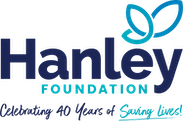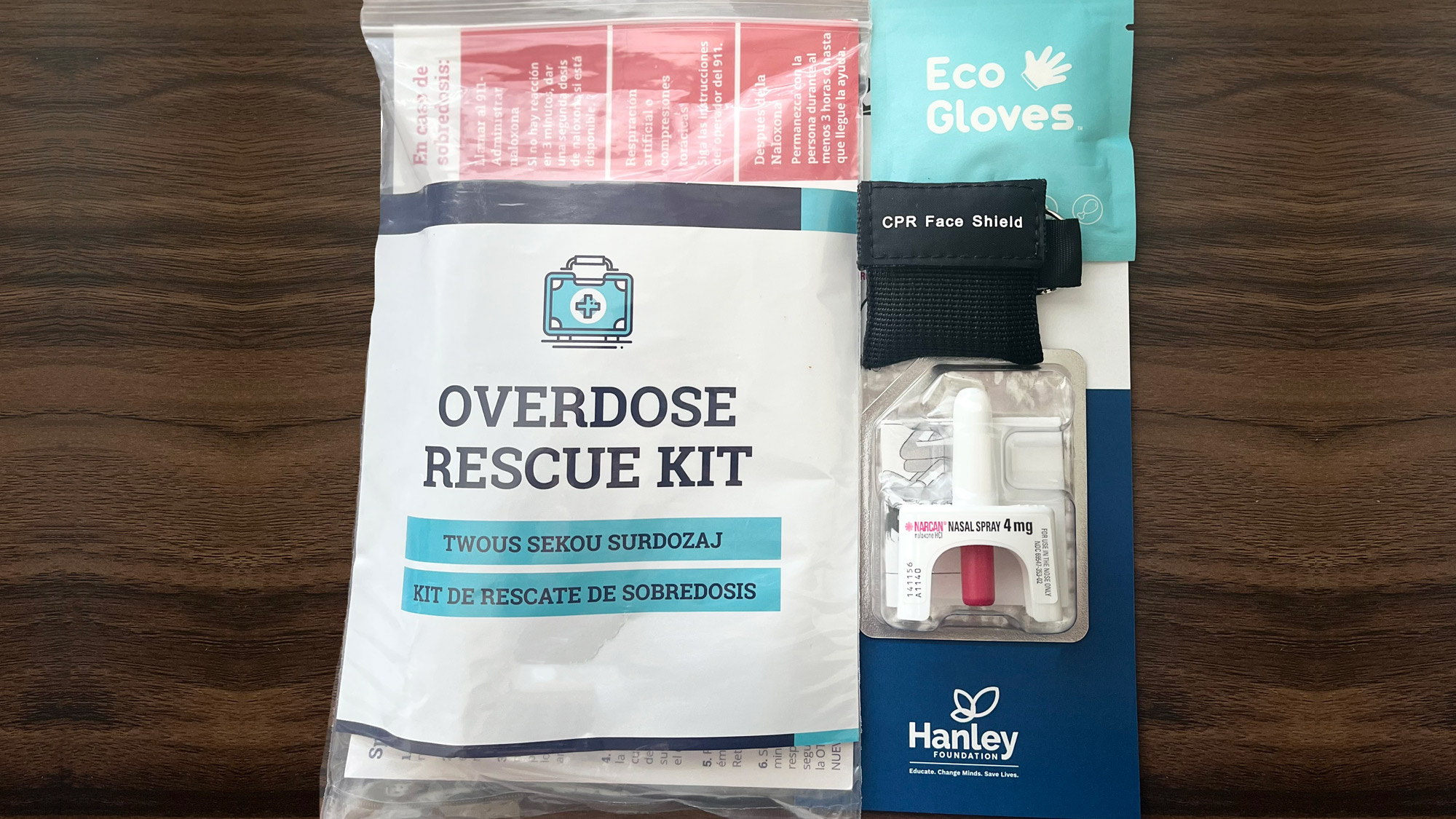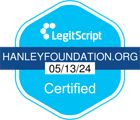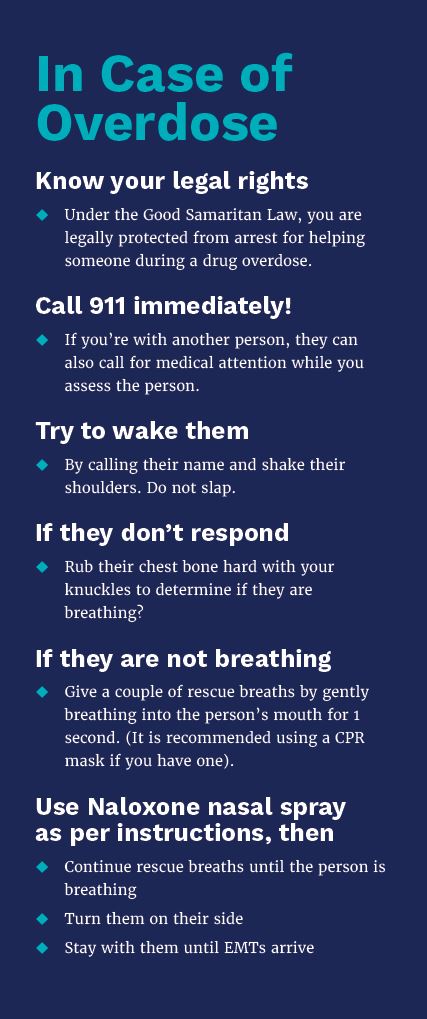 For those with family members struggling with opioid misuse, Narcan emerges as a critical tool. Narcan, or naloxone, can reverse opioid overdoses, potentially saving lives. Hanley Foundation recognizes the urgency of this issue and offers personalized treatment programs designed to address the complexities of opioid addiction. In this article, learn the signs of overdose, and about life-saving interventions, such as Narcan, to reverse overdose and save a life.
For those with family members struggling with opioid misuse, Narcan emerges as a critical tool. Narcan, or naloxone, can reverse opioid overdoses, potentially saving lives. Hanley Foundation recognizes the urgency of this issue and offers personalized treatment programs designed to address the complexities of opioid addiction. In this article, learn the signs of overdose, and about life-saving interventions, such as Narcan, to reverse overdose and save a life.
Recognizing its life-saving potential, Hanley Foundation not only offers information on Narcan and provides it to the community, but also provides personalized treatment programs designed to address the complexities of opioid addiction. Combining knowledge of interventions like Narcan with tailored treatment equips individuals to support loved ones on the journey to recovery. Startling statistics reveal a 109% increase in monthly drug overdose deaths among teenagers from 2019 to 2021, emphasizing the urgent need for awareness and intervention. Understanding the signs of opioid overdose, obtaining Narcan, and fostering sustainable recovery through Hanley’s expertise are essential components in combatting opioid misuse for yourself or a loved one.
Startling Statistics of Opioid Overdose
From 2019 to 2021, teenagers aged 10 to 19 had a startling 109% increase in monthly drug overdose deaths, suggesting a frightening rise in substance-related fatalities. The prevalence of deaths involving illicitly made fentanyl’s increased by 182%, with opioids accounting for about 90% of these fatalities and illicit fentanyl accounting for 84%. Surprisingly, counterfeit medications were discovered in approximately 25% of these events, highlighting the worrisome prevalence of fraudulent drugs. Even more troubling is the fact that two-thirds of people who died from overdoses had potential bystanders present, but the majority failed to respond to an overdose reaction, typically owing to a lack of awareness. Criminal drug networks compound the situation by flooding markets with counterfeit medications masquerading as legal prescriptions, endangering lives. The DEA’s seizure statistics add a shocking reality: 7 out of every 10 counterfeit prescription tablets contain a potentially fatal amount of fentanyl. In addition to fentanyl, xylazine, a central nervous system depressant and animal tranquilizer, has emerged, contributing to an increase in overdose deaths and adding a deadly element to the opioid epidemic.
Signs of Opioid Overdose
Opioid overdoses are a serious and potentially fatal risk that must be recognized and treated as soon as possible. Understanding the warning signals of an opioid overdose is critical for prompt intervention and potentially life-saving actions.
- Blue Lips or Fingertips: Insufficient oxygen circulation may result in a bluish or purplish discoloration around the lips and fingertips, indicating a critical lack of oxygen.
- Limp Body: Opioid overdoses can induce extreme muscle weakness, leading to a limp or floppy body.
- Pinpoint Pupils: Constricted or pinpoint pupils are a hallmark sign of opioid overdose, caused by the drugs’ impact on the muscles controlling pupil size.
- Slow or Shallow Breathing: Opioids depress the respiratory system, leading to slow or shallow breathing. In severe cases, it may progress to respiratory failure.
- Unresponsiveness: Individuals experiencing an opioid overdose may become unresponsive, with difficulty arousing them even through vigorous stimuli.
Ease of Obtaining Narcan
Anyone concerned about the risk of opioid overdose can obtain Narcan, a life-saving opioid overdose reversal medicine. Most states allow Narcan to be acquired from a drugstore without a prescription. Furthermore, many public health authorities and community organizations like Hanley Foundation offer Narcan for free. Individuals are able to get Narcan by visiting a local pharmacy, inquiring at a health clinic, or attending community gatherings where it is distributed. Along with the drug, proper Narcan administration training is frequently offered. Carrying Narcan is straightforward; it often comes in the form of a nasal spray or auto-injector, making it quick to use in an emergency. Having Narcan on hand can save lives by quickly reversing the effects of an opioid overdose.
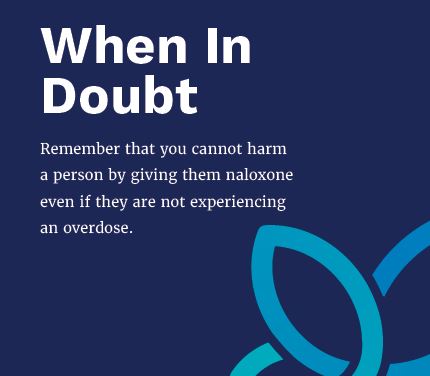 Using Narcan for the First Time
Using Narcan for the First Time
First-time Narcan administration is a critical skill that can save lives in the case of an opioid overdose. Narcan comes in two forms: nasal spray and auto-injector. In an emergency, remove the Narcan device from its container and follow the instructions that come with it. Insert the nozzle into one nostril and press the plunger to release the medication. Firmly press the auto-injector against the outside thigh to activate it and administer the dose. It is critical to contact emergency services promptly after administration. A second dose may be required if the individual does not respond within a few minutes. The success of Narcan emphasizes the significance of quick response and understanding in dealing with opioid overdose incidents. As Allison Jimenez, MS, MHC, Hanley Foundation Director of Programs, explains, “We also work to reduce stigma through harm reduction by distributing Narcan and training people on how to administer Narcan. Through the Safe Prescribing Initiative, we educate physicians, caregivers, and youth about the dangers of misusing prescription medications, specifically opioids.”
Sustainable Recovery at Hanley Foundation
Hanley is at the leading edge of combating the opioid epidemic, providing a personalized program that empowers patients on their path to recovery. Hanley’s programs create personalized treatment plans that help patients toward a sustainable recovery route based on a thorough understanding of the unique obstacles faced by opioid use. We focus on the specialized needs of our patients, from complete medical treatment and detoxification to tailored therapy. The dedication goes beyond the initial treatment, ensuring a smooth transition into continuing care alternatives. Hanley pioneers a transforming experience that goes beyond standard treatment by establishing a supportive and tailored approach with gender and age-specific programs, supporting long-term recovery and empowering patients to reclaim their lives from the shackles of addiction to opioids.
Download Hanley’s Naloxone Flyer
If you or a loved one need help, call our admissions team today at 855-809-4673.Hanley Foundation is a nonprofit organization dedicated to substance use prevention, advocacy, recovery support, and access to quality treatment. With a legacy built on compassion and commitment, Hanley continues to expand its support to students, individuals, families, and communities affected by substance use disorders.
